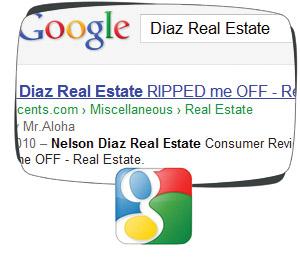The Daily Reputation Checklist: How to Manage Your Brand’s Online Reputation in 60 Minutes a Day
How much time do you spend every day managing your brand’s online reputation?
If you are anything like any other marketer with a myriad of tasks on your hand, you probably let your online reputation work slide. And that’s not good at all.
According to a Nielsen study, 54% of consumers decided not to do business with a company based on the information they learned about the way the company handled customer service, products, delivery and so on.
Reviews, comments and ratings are a powerful source of information that can make or break your brand. You don’t have to look hard to find examples of how bad online reviews or a faulty online reputation strategy can affect a company. As a small business, it is paramount that you curate and protect your reputation.
But, how can you handle your online reputation if you are pressed by time?
Here’s the plan:
- Scan Social Media (Estimated Time: 15 Minutes)
Social media monitoring is the best way to keep an eye on what is happening with your small business, your competitors, and to find out what people are saying about you. You can use services such as Hootsuite to set up search streams and watch brand mentions in real-time.
Passing through each social channel and reading every mention or comment will help you catch problems before they turn into something bigger and nastier. Addressing bad comments and attacks is something you can handle in the hour you’ve set aside each day for your online reputation checklist.
- Google Your Business (Estimated Time: 15 Minutes)
Online reputation management means keeping your eyes on online reviews everywhere, not just on social media. So, running a quick Google check every day is crucial.
Don’t worry, you won’t have to read every blog or watch every video that mentions your name. There are better, simpler ways of running a Google check. For example, start typing your company name to see what keywords are automatically associated with your brand. These suggestions are generated based on the most frequently searched terms. So, if words like “fraud”, “scam” or “nasty” are associated with your name, it means you have a big problem to solve.
Another thing you can do is searching for your company name, and scan the first page for bad reviews and negative ratings.
Surely, you won’t be able to address these problems in 15 minutes, but you can include them in your online reputation management plan. For instance, if you need to correct a nasty keyword association, you can publish articles, blog posts, video, and press releases to change the public’s perception of your small business.
- Read & Address New Company Reviews (Estimated Time: 30 Minutes)
When it comes to voicing a company’s marketing message, power has shifted away from businesses and toward consumers. Nowadays, customers take to sites like Yelp, Trip Adviser and other similar pages to discuss their experiences with your local business.
Scanning each site every day and reading reviews will help you find problems before they snowball.
Reaching out to your reviewers and addressing every problem, even briefly, will show your customers that you care about them. Another solution is to move the discussion to a private channel or via email or phone call.
When it comes to online reputation management, promptness is a great asset. The sooner you start searching, addressing and solving complaints, the better your small business will be.






Leave A Comment